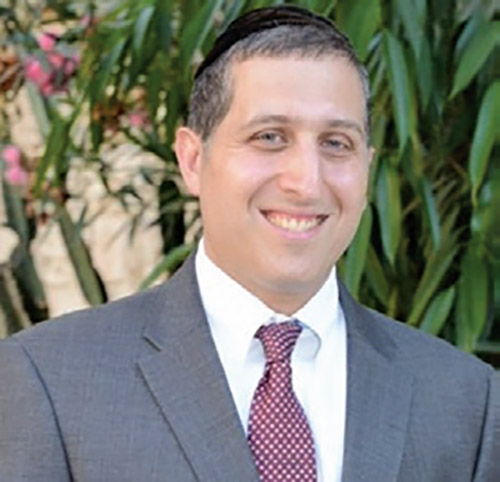
I feel a huge debt of gratitude to Lianne and Etiel Forman for enabling our community to take a giant step forward in the way we speak and think about substance abuse and addiction. The courage and heroism of Elana Forman in stepping into the public eye to support the many other people who struggle with addiction is literally breathtaking.
Sometimes we think that our religious community is protected from these dangers and sometimes we admit that it is indiscriminate. However, it is possible that the contours of our religious lifestyle can sometimes increase our vulnerability to the use and misuse of drugs and alcohol. The second of this week’s parshiyot opens with the sweeping but vague directive “Be holy.” What exactly is one to do in order to become holy? While some commentaries interpret this holiness to be something that is achieved by conforming to the specific commandments of the Torah, Ramban suggests an alternative interpretation that highlights a fundamental truth about Torah Judaism. It is certainly true that the hundreds of mitzvot of the Torah, with their thousands of details, are intended to mold our moral and ethical character in a way that personifies holiness. However, the reality is that that this might not happen. A person can become a “naval bershut haTorah” who slips into “excess consumption of meat and wine,” albeit glatt kosher. The many restrictions that we have can lead to the mistaken belief that they will protect us from all dangers of the world. However, they do not necessarily do so. Thus, our achilles heel is this mistaken belief and overconfidence in ourselves and in our system. We are equally at risk of slipping into danger and we must be exceedingly vigilant in protecting ourselves and our families. This vigilance is subsumed under the broad directives of “be holy” and “protect your lives very much” (Devarim 4:15).
Alcohol consumption is often associated with mitzvot, such as Kiddush. However, in Parshat Shemini it was the subject of a stern warning that a priest who enters the Beit Hamikdash and performs the Temple service after drinking a few ounces of wine is subject to the death penalty, even if the service was performed correctly. Similarly, Chazal understood that the same prohibition applies to a Torah scholar who teaches halacha after drinking wine, even if the law was taught correctly. I believe that the reason for this prohibition is not merely to ensure the precision of the sacred work, but to teach a profound lesson. Intoxication is often pursued in order to escape the seemingly meaninglessness of the mundane life. Similarly, religious worship intends to fill the emptiness of the world with meaning; without a connection to that which is transcendent, our souls feel empty. Thus, the pursuit of intoxication is often associated with a spiritual learning, and the road back to sobriety is often a spiritual process. However, the pursuit of intoxication and the pursuit of godliness may never be mingled or interchanged; the Jewish priest may never enter the House of God with a trace of alcohol in his body. This teaches us that true transcendence is achieved through focused engagement and purposeful worship. We cannot confuse this with a short-lived high that is used to escape, rather than engage, the world.
We live in a time of unprecedented accessibility to drugs and alcohol that threatens the safety of our community and society. The dangers lie in addiction and also in casual misuse and abuse of these substances. It is incumbent upon us to best educate ourselves and our children to better control this epidemic. This past week’s event must be the beginning of a series of educational opportunities in our community, with practical instructions, to make a lasting difference. We must end the stigmas that exist so that those who are suffering most from addiction can get the help and support needed from our most dedicated and loving community. Thank you to the Formans, to Amudim, to the sponsors and to the hundreds of attendees of this week’s event for taking us one step closer to the de-stigmatization of addiction in our community.
By Rabbi Kenny Schiowitz









